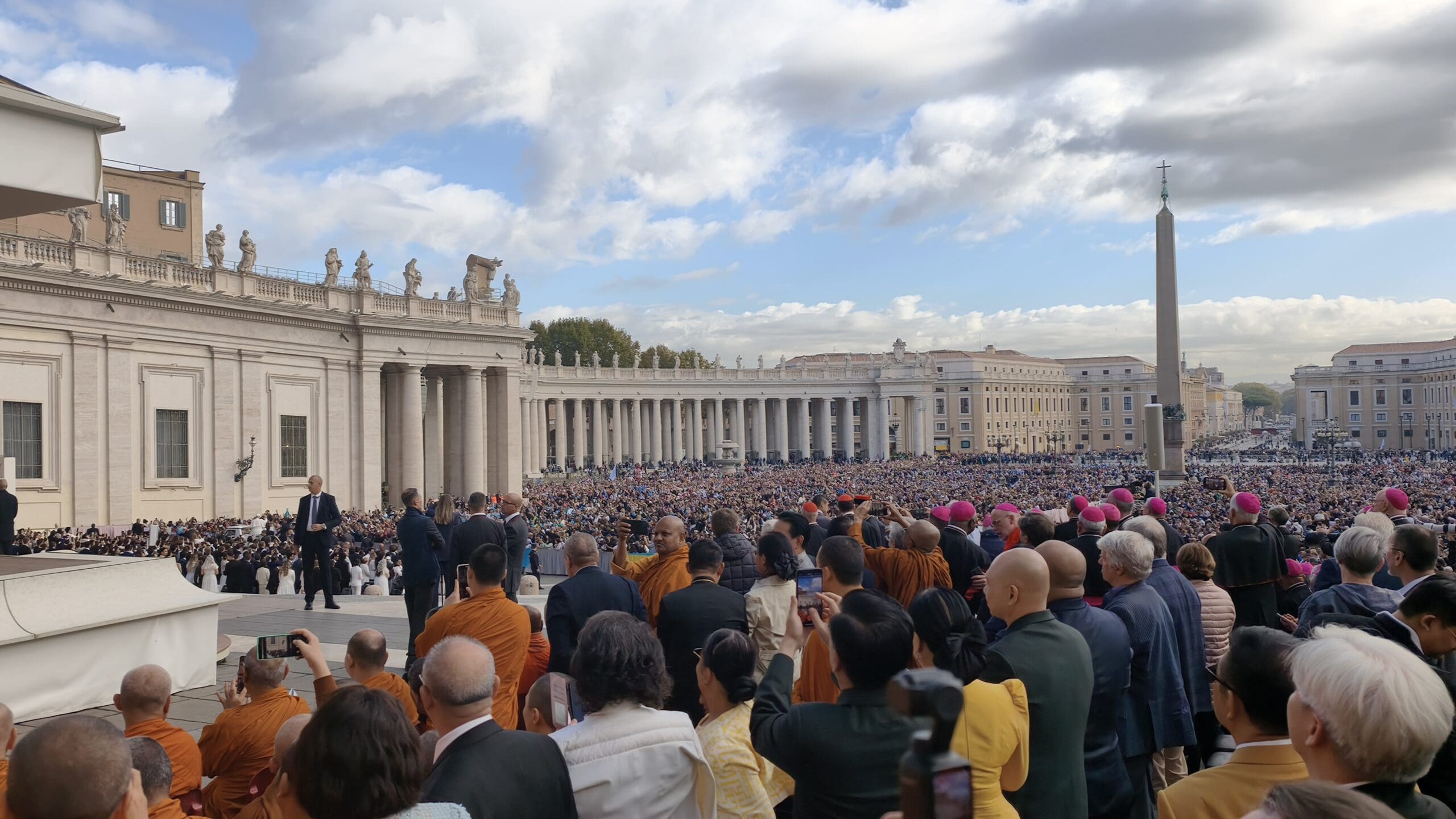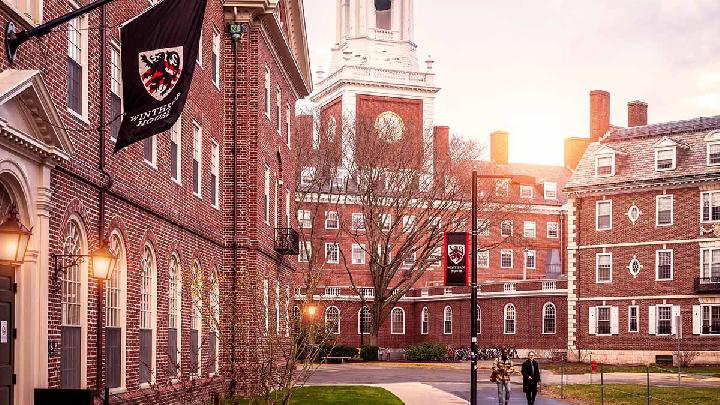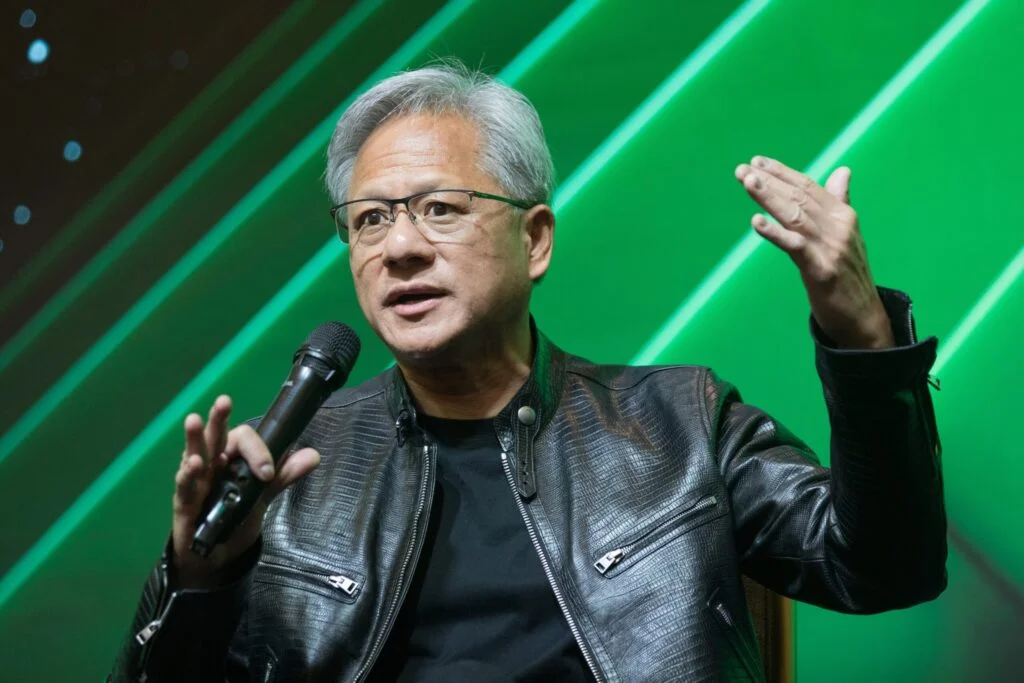Copyright europeantimes

Sixty years after the Second Vatican Council’s declaration Nostra aetate, Pope Leo XIV reaffirmed the Catholic Church’s firm rejection of antisemitism and called for deeper friendship and collaboration among all religions — from Judaism, Islam, Hinduism, and Buddhism to newer faiths — to rebuild hope in a divided world. Speaking to tens of thousands gathered in St. Peter’s Square during the Wednesday General Audience, Pope Leo XIV underlined that “the Church does not tolerate anti-Semitism and fights against it, on the basis of the Gospel itself.” His remarks came as part of a week of commemorations marking the sixtieth anniversary of Nostra aetate, the Second Vatican Council’s landmark Declaration on the Relation of the Church to Non-Christian Religions. A message against hatred and division Echoing his predecessors from Paul VI to Francis, Pope Leo highlighted that the Church’s commitment to denounce anti-Semitism “remains unwavering.” He praised the progress achieved in six decades of Jewish–Catholic dialogue, calling it “a point of no return” rooted in the shared spiritual heritage of the Patriarchs, Moses, and the Prophets. “Even today,” he warned, “we must not allow political circumstances or injustices to divert us from friendship, especially since we have achieved so much so far.” The Pope welcomed leaders from many religious traditions present at the audience — including Jewish rabbis, Muslim imams, Hindu swamis, Buddhist monks, Sikh granthis, Baháʼí representatives, Zoroastrian priests, Jain scholars, Taoist masters, Shinto priests, and delegates from various Christian denominations. Among the attendees were also representatives of new religious movements like Scientology and indigenous spiritual traditions, plus different interfaith groups such as Transcendence, Religions for Peace, and the largest grassroots interfaith network, the United Religions Initiative. The attendance of such a variety of religions and interfaith dialogue groups, “bears witness that the seed planted sixty years ago has grown into a mighty tree of understanding and peace.” Faiths acting together for humanity Turning to the challenges of the present, the Pope emphasized that “our world needs our unity, our friendship, and our collaboration more than ever.” He called on religions to join forces in alleviating human suffering, protecting our planet, teaching compassion and truth, and confronting the misuse of religion for violence or division. Pope Leo also extended this moral duty to the ethical development of technology, particularly artificial intelligence, warning that “if conceived as an alternative to humans, it can gravely violate their infinite dignity.” Religious communities, he said, have “an immense contribution to make to the humanization of technology” by ensuring it serves humanity and safeguards fundamental rights. Hope rooted in the human heart Reflecting on the enduring message of Nostra aetate, Pope Leo recalled how the document offered hope after the devastation of World War II by opening a new era of encounter, respect, and spiritual hospitality. Today, he said, “we are called upon to rekindle that hope in a world devastated by war and our degraded natural environment.” “Our religions teach that peace begins in the human heart,” he affirmed. “We must restore hope to our personal lives, our families, our neighbourhoods, our schools, our villages, our countries, and our world.” Unity among believers of all faiths, he insisted, is essential to transmit “the spirit of friendship and collaboration to the next generation.” Nostra Aetate: still guiding the Church Addressing Catholics directly, Pope Leo reminded the faithful that Nostra aetate continues to illuminate the Church’s mission today. “The Declaration invites all Catholics—bishops, clergy, consecrated persons, and lay faithful—to involve themselves sincerely in dialogue and collaboration with the followers of other religions,” he said, “recognizing and promoting all that is good, true, and holy in their traditions.” In the diverse and multicultural cities of today’s world, the Pope added, this openness “is not an option but a duty,” for dialogue rooted in love “is the only foundation of peace, justice, and reconciliation.” He stressed that the Church must reject every form of discrimination or persecution and uphold “the equal dignity of every human being.” The well of dialogue Pope Leo concluded his catechesis by recalling Jesus’ encounter with the Samaritan woman at the well, as described in the Gospel of John — a moment where barriers of culture, gender, and religion were overcome through dialogue. “This encounter,” he said, “reveals the essence of authentic religious dialogue: God’s presence beyond all boundaries and the invitation to seek Him together with reverence and humility.” He invited the faithful and all people of goodwill to a moment of silent prayer, reminding them that “prayer has the power to transform our attitudes, our thoughts, our words, and our actions.” With this renewed call, Pope Leo XIV placed Nostra aetate back at the center of the Church’s mission — a mission that embraces Jews, Muslims, Hindus, Buddhists, Sikhs, Baháʼís, Jains, Taoists, Shintoists, indigenous peoples, and all who sincerely seek the divine — as partners in building a world of peace, dignity, and shared hope.



